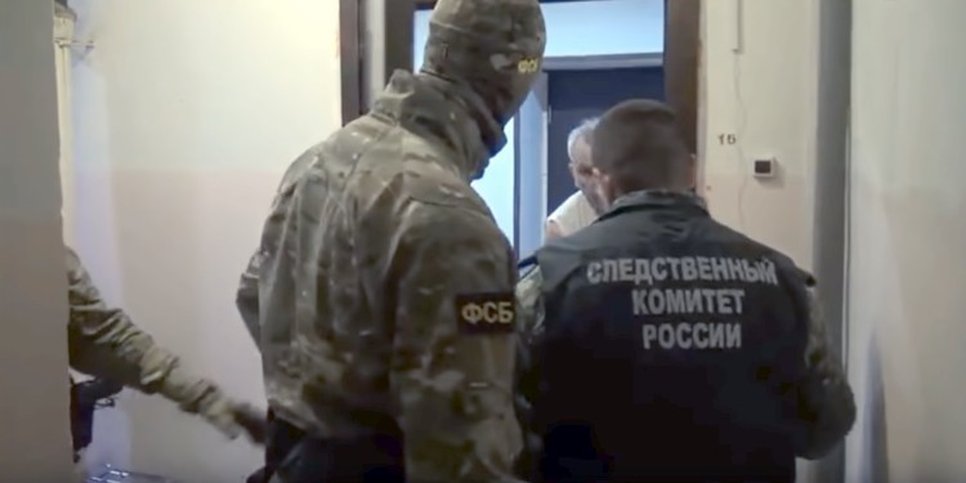Photo: invasion of believers in the Khanty-Mansi Autonomous Okrug in 2019 (archival photo)
Photo: invasion of believers in the Khanty-Mansi Autonomous Okrug in 2019 (archival photo)
On the evening of June 4, 2019, the FSB conducted searches in at least 9 homes of local believers. Viktor Stashevsky, 52, was detained, but the next day he was released from the detention center on his own recognizance. A criminal case was opened against him under the article "Organization of the activities of an extremist organization" (part 1 of article 282.2 of the Criminal Code of the Russian Federation).
The search warrants were issued by the judge of the Leninsky District Court of Sevastopol, Anatoly Vasilenko. They were attended by FSB officers and special forces. In at least one case, the security forces invaded the apartment in the absence of the owners, making the door unusable. The searches continued until late at night. Computer hard drives, phones and tablets were seized. The next morning, the believers were summoned for interrogation to FSB investigator A. Chumakin, who specializes in persecution for faith in Crimea.
Shortly before the searches, residents of one of the apartments suspected hidden espionage activity and changed their wireless Internet access point. During the search, the task force was accompanied by a "technician" who hid his face behind a mask.
Detainee Viktor Stashevskiy was a former member of the local Christian religious organization (MHRO) of Jehovah's Witnesses. This organization was registered by the Russian Ministry of Justice in May 2015 at the initiative of the Russian authorities, along with 21 other similar organizations, in order to promote the religion of 8,000 Jehovah's Witnesses on the peninsula. Less than 2 years later, without receiving any complaints, without involvement in the case, these organizations were liquidated by the Supreme Court of Russia with a single stroke of the pen and recognized as "extremist" without any reason. The criminal prosecution of believers was a direct consequence of these events, despite the fact that the activities of the MHRO were not carried out after the liquidation.
The 10-minute film tells about how the persecution cripples the lives of innocent Crimean believers.
